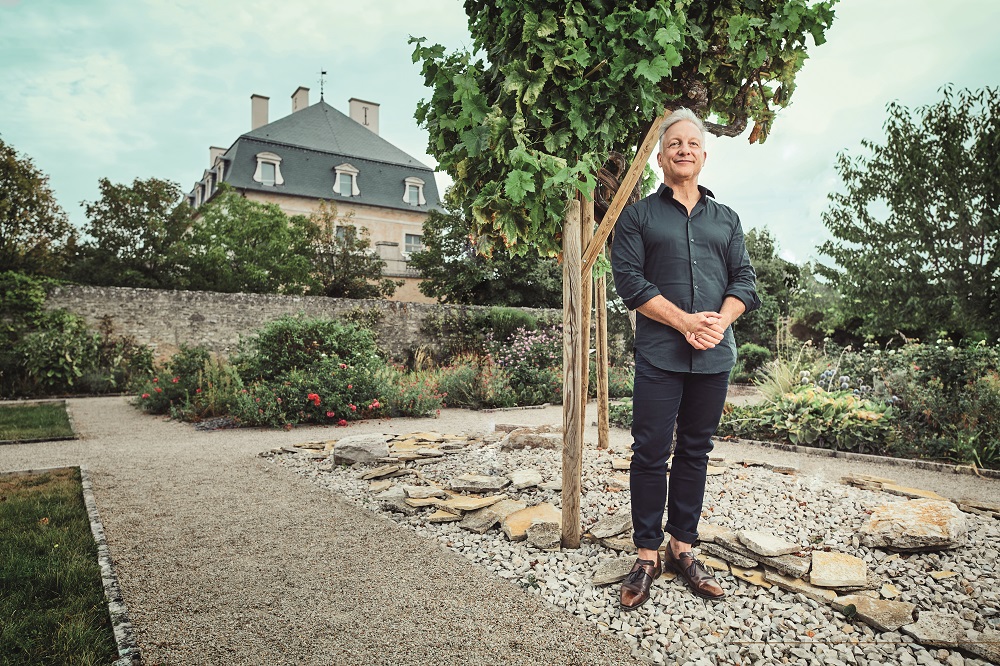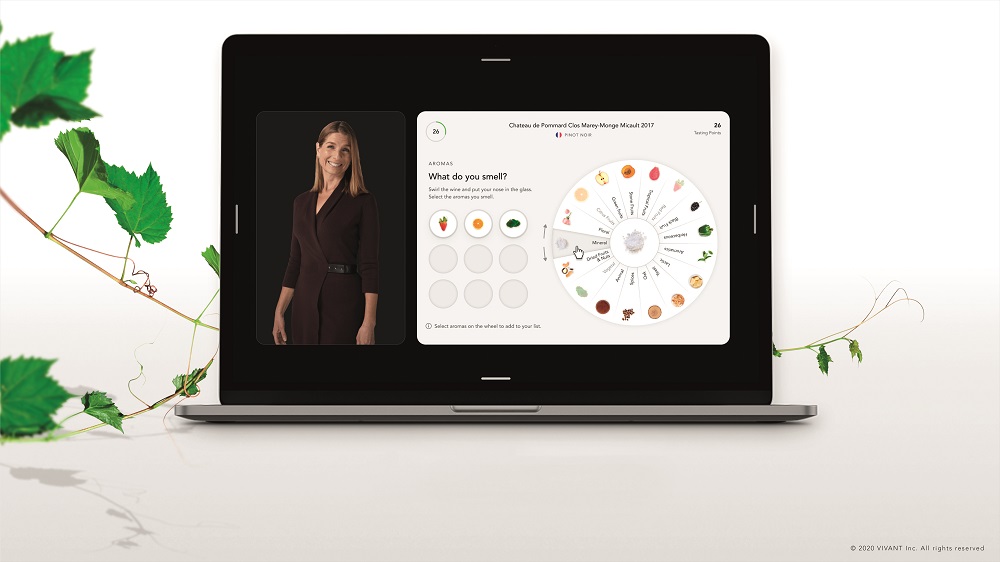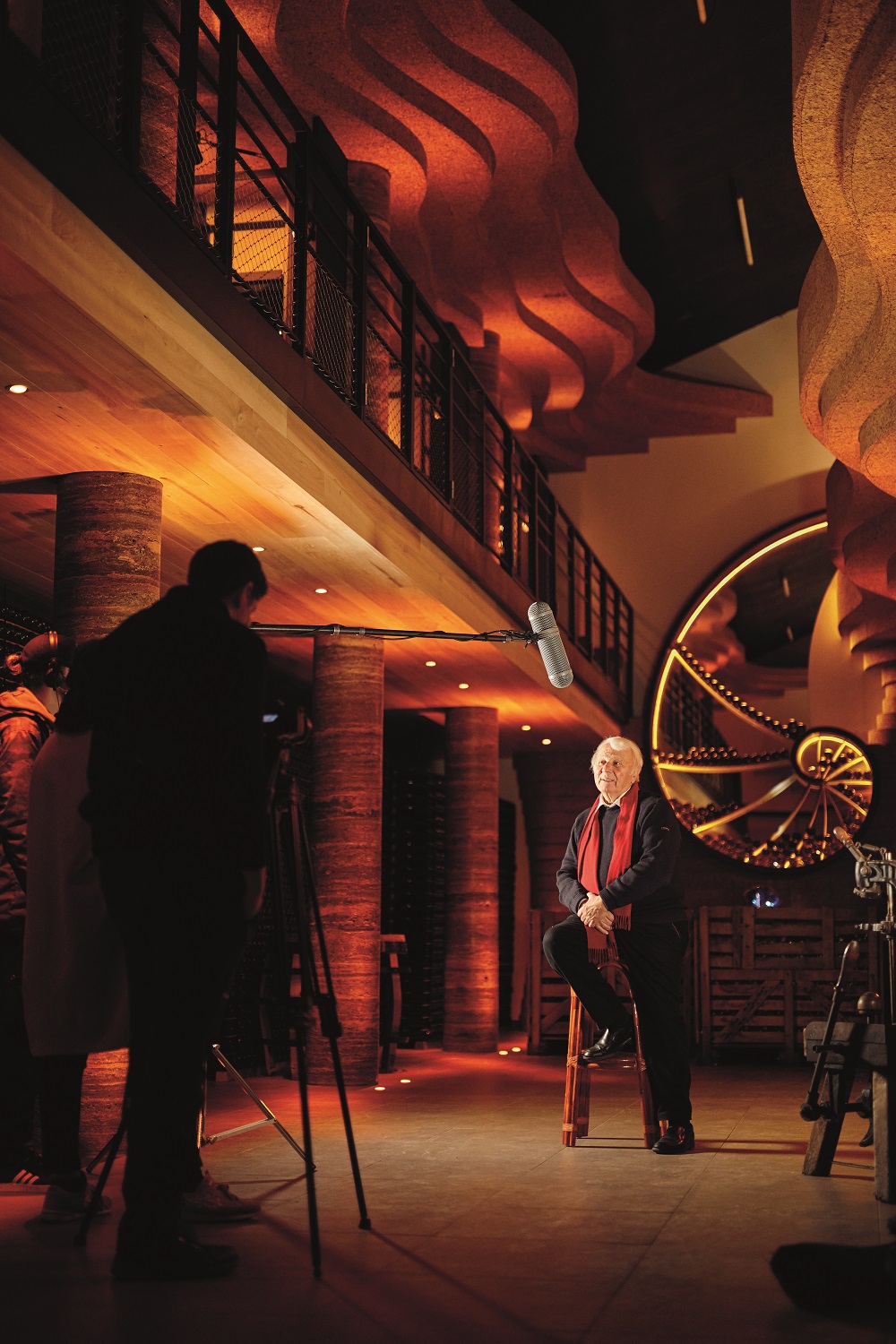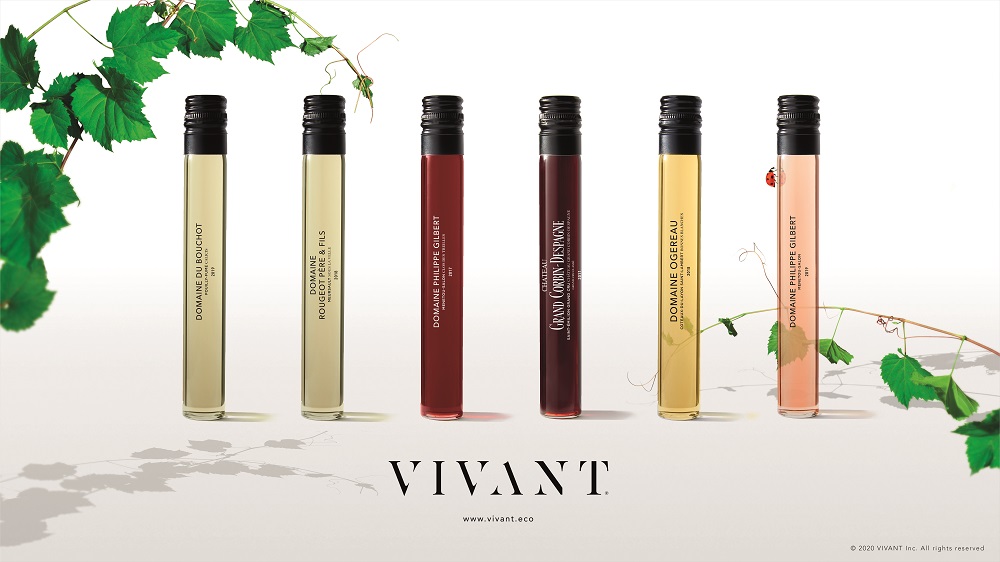When Michael Baum, CEO and Founder of Vivant, became the first American owner of a Burgundy vineyard, Château de Pommard, the technology entrepreneur began applying his innovative ideas to the age-old domain of wines, leading to the creation of online platform Vivant.

Michael Baum is curious by nature, and a creator of successful start-ups. Having founded six different technology companies over the years, he’s more recently been focused on starting and running Founder.org, including supporting the 128 companies started with university students around the world, Rootstock Music, and Vivant. That’s on top of his investment in Château de Pommard in Burgundy in 2014, which he has since converted to biodynamic viticulture, a topic in which he is now a passionate advocate.
The results (of biodynamic conversion) went beyond our expectations, and our wines are now more aromatic, flavourful, and energetic than ever. We have clients all over the world in 92 different countries. To share our story with them meant we had to physically travel, creating a carbon footprint and going against our very belief in caring for our planet. So to scale, we challenged ourselves to create the magic of greeting people at the chateau, but online,” Baum explains.
“Soon, we realised this was an opportunity to help other responsible winemakers tell their story too and connect with potential clients around the world. This is something most of these smaller producers would never have the chance to do otherwise. We brought together an international team of wine educators, product designers, software engineers, and media producers to create a new platform where people can meet responsible winemakers and taste their wines alongside expert wine advisors, no matter where they are.”

The Vivant platform is a slick showcase that incorporates video, live classrooms, wine tastings and more, but there’s a more serious issue that underpins it – that currently, less than 3% of global wine is responsibly made. “Today, the wine industry isn’t sustainable at all. We’re putting all these chemicals in the ground and in our bodies. Not good at all,” laments Baum. “The problem is winemakers who produce responsible wines are in the minority, and their voices aren’t heard. Through digital wine experiences, we let them reach a global audience in a really fun way. For the consumer, we have created a way to distribute smaller tasting tubes of wine so it can now be cost-effective to taste a producer’s wine, no matter where you are in the world, during a digital experience.”
WHY SUSTAINABILITY MATTERS
“Vivant combines two of my biggest passions, technology and wine, so it is a joy each day to think about how we can make the platform and content even more inspiring and engaging. We have invested heavily to create a sophisticated platform for Live Experiences where participants interact and engage with the environment, not just watch a masterclass,“ shares Michael Baum.
“Our overarching mission at Vivant is to accelerate the wine world’s transition to a sustainable future by amplifying responsible winemakers’ voices. We show our members that naturally produced wines taste better (as has been proven in blind tastings), and we are building a global wine community committed to a better way,” he continues.
Their goals are not for Vivant, per se, but the industry and the planet as a whole. One percent of all membership fees and wine purchases help fund innovative new ideas and research positively impacting a sustainable future for wine through Vivant’s initiative 1% For Wine. “By 2030, we hope that at least 10% of the world’s wine is being produced responsibly. We will continue to reach out to winemakers worldwide to share more about what they do and ask them to take the Vivant pledge. We also hope to continue to grow our community of responsible wine drinkers, who can use the platform to further their knowledge and make more informed choices when selecting wines.”
“We are looking at a variety of projects that will help winemakers farm more naturally. For example, utilising plant-based products to control mildew (a major problem in grape growing) versus systemic chemicals or heavy metals like copper and sulfur. Genetic analysis is another fascinating field. Understanding the genetic makeup of the microbial life in your soil can really help you understand everything from the best rootstocks to plant to the best amendments to use.”

Baum points out that it’s not just a producer’s problem; it also traces back to consumer demand. “We’re making wine education more accessible and fun than ever, and a considerable part of this education piece focuses on responsibility: The responsibility we have to care for people, care for our planet, and care by supporting the producers who are the future of the industry. A lot of this is about consumer behaviour. We hope to not only connect responsible producers with consumers but also modify consumer preferences and behaviours, leading them to make better choices.”
“More globally, I hope that my work, in general, is helping make the world a better place than I found it. There are so many ways technology can contribute to improving people’s lives. We just need to focus on the opportunities.”
One of the most interesting aspects of technology is when humans are able to take an innovative idea in one domain and apply it to another. Baum explains that this idea fascinates him. “At my previous company, Splunk, I had the idea, while working at Yahoo!, to apply search technology to troubleshooting complex computers and software. But the inspiration came from watching the success of search being used to find information on the web.”
Baum recalls that as a child, he loved to disassemble and reassemble appliances, audio hi-fi systems, and eventually computers to understand how things worked. But it wasn’t until he got to university that he fell in love with math and algorithm. “Fortunately, the world of software was in its infancy at the time, and I was able to get involved at a very early stage of the industry,” says the 57-year-old. “I’m very interested to see advancements in AI and human-computer interfaces. I want to be able to control access to information with my brain, just by thinking, not by typing or speaking, which is too slow. On the other hand, I own several Teslas, but autonomous driving scares me.”
On the kind of revolution he wants to see in his lifetime, Baum replies, “I want to see dramatic changes in the way humans grow, package, and distribute our food. We are eating things with no flavour because they were grown with synthetic chemicals and kept alive for weeks during transit. Alternative methods of agriculture and plant-based substitutes for chemical fungicides can enable us to farm more rationally and build back the resources we have destroyed. Plastic packaging has to evolve; we’re killing the planet with so much waste. Just because we can ship edibles from one part of the world to another doesn’t mean we should. Advancements in farming techniques can enable people to go back to growing their own food, locally.”
For someone who is so wired and connected to technology as his work medium, play medium, and social medium, how much technology is too much? Baum leaves us with his advice, “For many kids growing up now, it is the main way they communicate with each other, share experiences and passions. For adults, we’re all so used to meeting people online. I’ve heard people use the saying ‘zoomed out’. And Covid has certainly accelerated all of this. So while it is easy to say, turn it off, walk away, leave the phone at home. It’s not so easy as technology is now the medium that many people live and work in. With that said, our planet provides an incredible respite from technology. Nature has a way of counterbalancing the ill effects of too much screen time. So I’d advise people to spend at least as much time with nature as they do with technology.”
“I want to be able to controlaccess to information with my brain, just by thinking, not by typingor speaking, which is too slow.”

DRINKING BETTER WINE
Michael Baum lays the issue out clearly: “Our collective future strongly depends on giving back to the living systems that are sustaining us. Companies are in the best position to effect a change in mindset, to set an example. I love wine and I want to continue to drink great wine. But, I also want future generations to be able to drink great wine, breath fresh air, drink clean water and live healthy productive lives. If we don’t take on this challenge, who will?”
Statistics show that Old World winemakers have a better appreciation for responsible winemaking. In example, France leads the world with three times more organic wine produced than any other country. And France leads the world in organic wine consumption with more than twice that of any other country.
“We have a number of studies that prove over hundreds of thousands of blind tastes tests and ratings that organic and biodynamic wines score significantly higher. Six points out of a hundred higher on average. For me personally, or for any wine professional, who is often tasting a lot of different wines; it is obvious that responsibly made wines are more energetic and the aromas and flavours more powerful. Conventionally farmed grapes just never reach their full potential versus organic or biodynamic grapes. My belief is that synthetic chemicals block the grapes’ natural abilities. You can see this when you taste two wines of the same vintage, from the same area and grape varietal. The responsibly grown grapes will give the wine a sense of life, of purity in aromas and flavours. On the other hand, the conventionally made wine will feel muted,” Baum asserts.